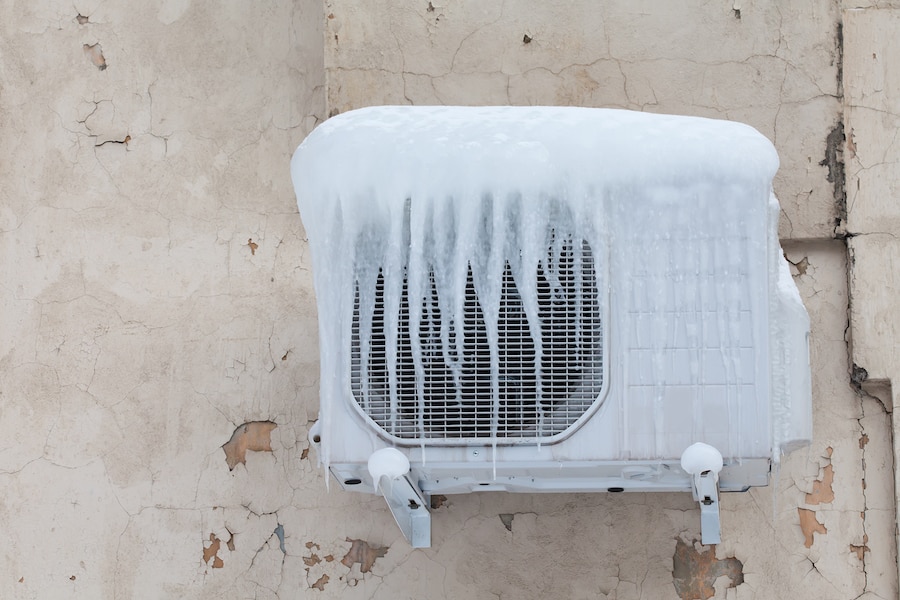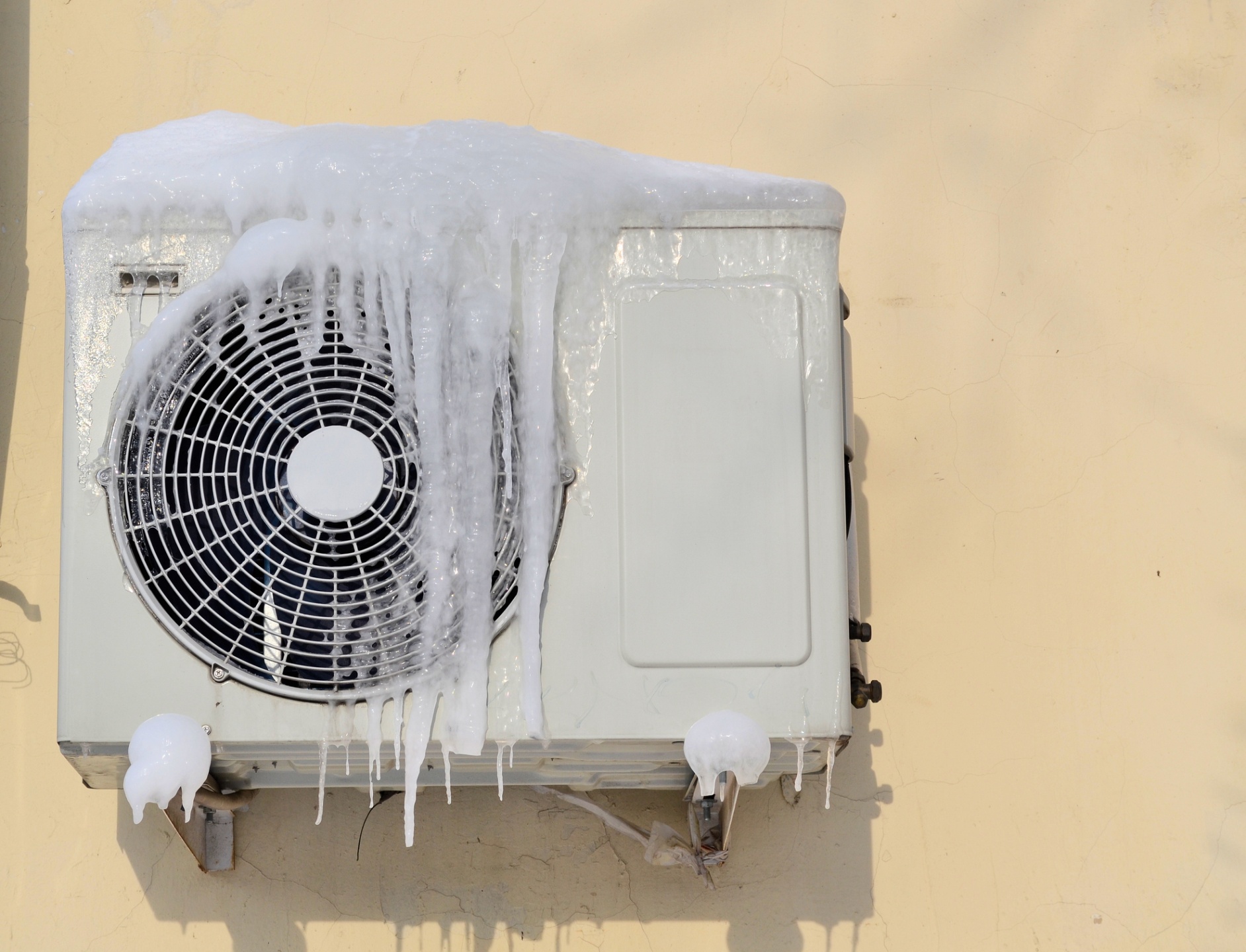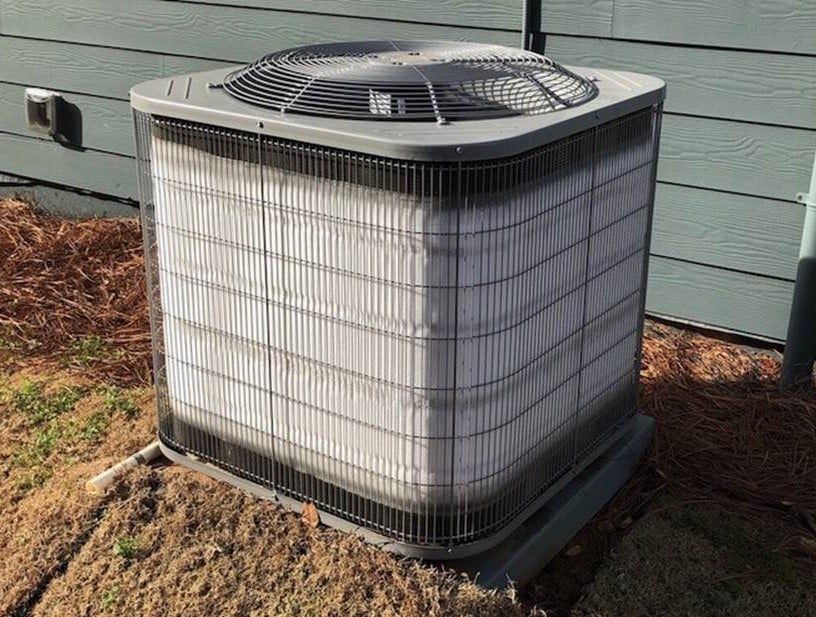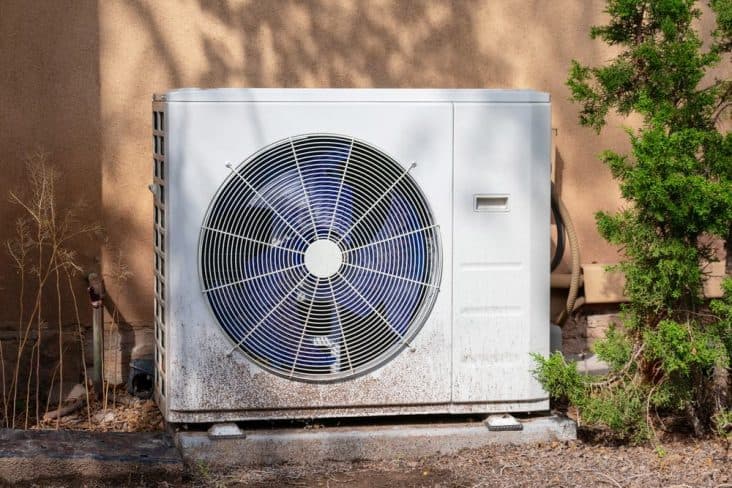Why Is My Ac Freezing Outside

Frequently Asked Questions: Why Is My AC Freezing Outside?
Seeing ice on your outdoor AC unit can be alarming. This FAQ will answer common questions about why your AC freezes up and what you can do about it. Understanding the cause is crucial for preventing further damage and ensuring your AC runs efficiently.
Q: Why is there ice on my outdoor AC unit? Is this normal?
No, ice on your outdoor AC unit is not normal. It indicates a problem that needs addressing. While it might seem counterintuitive – after all, ACs cool things down – the presence of ice means something is preventing your unit from operating as intended. The ice forms because the refrigerant is becoming too cold, often due to reduced airflow or low refrigerant levels.
Q: What are the most common reasons my AC is freezing up outside?
Several factors can lead to your AC freezing. Here are some of the most frequent culprits:
- Low Refrigerant: This is a very common cause. When refrigerant levels are low, the pressure inside the system drops, causing the evaporator coil to become extremely cold and freeze any moisture in the air.
- Restricted Airflow: If airflow is blocked, the refrigerant can’t absorb heat effectively. This makes the coil too cold, leading to ice formation. Common causes of restricted airflow include:
- Dirty Air Filter: A clogged air filter restricts airflow into your indoor unit, impacting the entire system.
- Dirty Evaporator Coil: Dirt and debris on the indoor coil hinder heat absorption.
- Blocked Outdoor Unit: Obstructions around the outdoor unit, like overgrown plants or debris, can restrict airflow.
- Closed Vents: Closing too many vents in your home can reduce overall system airflow.
- Faulty Blower Motor: The blower motor circulates air across the evaporator coil. If it's not working properly, the coil can get too cold.
- Low Outdoor Temperatures: Running your AC when outdoor temperatures are very low (below 60°F) can cause the unit to freeze, especially if it's not designed for low ambient operation. Most standard AC units aren't designed to operate efficiently in cold weather.
- Damaged or Dirty Condenser Fins: The condenser fins on the outdoor unit help dissipate heat. If they are bent, damaged, or covered in dirt, it reduces the system's ability to release heat, contributing to freezing.
Q: What should I do if I see ice on my outdoor AC unit? Can I fix it myself?
Here's a step-by-step approach to addressing an iced-up AC unit:
- Turn Off the AC: The first and most important step is to turn off your AC system at the thermostat. This will stop the cooling process and allow the ice to melt. Continuing to run the AC while it's frozen can damage the compressor.
- Turn On the Fan: Switch the thermostat setting to "Fan On" (instead of "Auto"). This will circulate air over the frozen coil and help it thaw faster.
- Inspect and Replace the Air Filter: Check your indoor air filter. If it's dirty, replace it immediately. A clean air filter is crucial for proper airflow.
- Check for Obstructions: Examine the outdoor unit and remove any obstructions, such as leaves, debris, or overgrown plants, that might be blocking airflow around the unit.
- Wait for the Ice to Melt: Allow several hours for the ice to melt completely. Do not attempt to chip away at the ice, as this can damage the delicate coils.
- Restart the AC and Monitor: Once the ice has melted, turn the AC back on and monitor its performance. If the problem persists or the unit freezes up again quickly, it's time to call a qualified HVAC technician.
When to call a professional: While you can address airflow issues yourself, problems like low refrigerant, a faulty blower motor, or damaged condenser fins require professional diagnosis and repair. Attempting to fix these issues yourself can be dangerous and may void your warranty.
Q: How can I prevent my AC from freezing up in the future?
Prevention is key to avoiding future freezing problems. Here are some preventative measures you can take:
- Regularly Replace Air Filters: Change your air filter every 1-3 months, or more frequently if you have pets or allergies. A clean filter ensures proper airflow and prevents dust and debris from accumulating on the evaporator coil.
- Schedule Regular AC Maintenance: Have your AC system professionally inspected and serviced at least once a year. A technician can identify and address potential problems, such as refrigerant leaks, before they lead to freezing.
- Keep the Outdoor Unit Clean: Regularly clear away any debris, leaves, or plants that might be obstructing airflow around the outdoor unit. Hose down the unit gently to remove dirt and grime, being careful not to damage the fins.
- Don't Close Too Many Vents: Avoid closing off too many vents in your home, as this can reduce overall system airflow and cause the evaporator coil to freeze.
- Avoid Running the AC in Cold Weather: Unless your AC unit is specifically designed for low ambient operation, avoid running it when outdoor temperatures are below 60°F. If you need cooling in cooler weather, consider using a window AC unit designed for low-temperature operation or other cooling alternatives.
- Consider a Smart Thermostat: A smart thermostat can help you monitor your AC's performance and alert you to potential problems, such as excessive run times or unusual temperature fluctuations, which could indicate a freezing issue.
Q: Is it possible the freezing is happening even if I don’t see ice?
Yes, it is possible for your AC to be experiencing a freezing problem even if you don't visibly see ice on the outdoor unit. Here's why:
- Ice Melting Quickly: If the ambient temperature is relatively warm, the ice might melt quickly, leaving little to no visible evidence. You might only notice reduced cooling performance.
- Internal Freezing: The freezing could be occurring primarily on the indoor evaporator coil, which is not easily visible without removing access panels.
- Early Stages of Freezing: The freezing process might be in its early stages, with only a thin layer of ice forming that melts quickly during the AC's off cycle.
Signs of Hidden Freezing: Even without visible ice, look for these indicators:
- Reduced Cooling Performance: The AC isn't cooling your home as effectively as it usually does.
- Weak Airflow: Airflow from the vents is noticeably weaker than normal.
- Musty Odor: A musty or moldy smell coming from the vents can indicate moisture buildup due to freezing and thawing.
- Increased Energy Bills: The AC is running longer and more frequently to maintain the desired temperature, resulting in higher energy bills.
If you suspect your AC is freezing even without visible ice, it's best to turn it off, inspect the air filter, and call a qualified HVAC technician for a thorough inspection.
Q: Could a dirty condenser coil cause the AC to freeze up, even if the air filter is clean?
Yes, a dirty condenser coil can absolutely cause your AC to freeze up, even if your air filter is clean. The air filter primarily protects the *indoor* evaporator coil. The condenser coil, located in the *outdoor* unit, has a different function and is susceptible to different types of dirt and debris.
Here's how a dirty condenser coil contributes to freezing:
- Reduced Heat Dissipation: The condenser coil's job is to release heat from the refrigerant. When the coil is covered in dirt, leaves, pollen, or other debris, it can't effectively dissipate heat to the outside air.
- Increased Refrigerant Pressure: The inability to release heat causes the refrigerant pressure to increase. This, in turn, can lead to a drop in temperature at the evaporator coil inside, making it more prone to freezing.
- System Overload: The AC system has to work harder to compensate for the reduced heat transfer, putting extra strain on the compressor and other components. This can further exacerbate the freezing problem.
Cleaning the Condenser Coil: To clean the condenser coil, follow these steps:
- Turn Off the Power: Disconnect the power to the outdoor unit at the breaker box. Safety First!
- Remove Debris: Remove any large debris, such as leaves, twigs, or grass clippings, from around the unit and the coil.
- Use a Fin Comb: Straighten any bent fins with a fin comb. Bent fins restrict airflow.
- Hose Down the Coil: Use a garden hose with a gentle spray nozzle to wash the coil from the inside out. Avoid using high pressure, as this can damage the fins.
- Use Coil Cleaner (Optional): For stubborn dirt and grime, you can use a commercially available AC coil cleaner. Follow the manufacturer's instructions carefully.
- Rinse Thoroughly: Rinse the coil thoroughly with water to remove any remaining cleaner.
- Allow to Dry: Allow the coil to air dry completely before turning the power back on.
Professional Cleaning: If you're uncomfortable cleaning the condenser coil yourself, or if it's heavily soiled, consider hiring a professional HVAC technician to clean it.
Q: My AC is freezing, but it's also making a strange noise. Should I be concerned?
Yes, any unusual noise accompanying a freezing AC unit is a cause for concern. The freezing itself already indicates a problem, and the added noise suggests a potential mechanical or operational issue that could lead to further damage.
Here are some common noises and what they might indicate:
- Squealing or Screeching: This could indicate a problem with the blower motor or the compressor. A failing blower motor can restrict airflow, contributing to freezing. A screeching compressor could signify a serious internal issue that requires immediate attention.
- Grinding: A grinding noise often points to a failing compressor. This is a major problem that can lead to costly repairs or even complete system failure.
- Hissing or Bubbling: These sounds might indicate a refrigerant leak. Low refrigerant is a common cause of freezing.
- Loud Clicking or Clanging: These noises could be caused by loose parts, a failing capacitor, or other electrical issues.
- Humming: A humming sound from the outdoor unit may indicate a problem with the compressor's start capacitor or a stuck fan motor.
What to Do:
- Turn Off the AC Immediately: To prevent further damage, turn off the AC system at the thermostat and the breaker box.
- Do Not Attempt DIY Repairs: Noises accompanying freezing often indicate more complex problems that require professional diagnosis and repair.
- Call a Qualified HVAC Technician: Contact a licensed and experienced HVAC technician as soon as possible. Explain the noises you're hearing and the fact that the unit is freezing. Provide as much detail as possible to help the technician diagnose the problem accurately.
Ignoring unusual noises from your AC can lead to more serious and expensive repairs down the road. It's always best to err on the side of caution and seek professional assistance.








.jpg)

